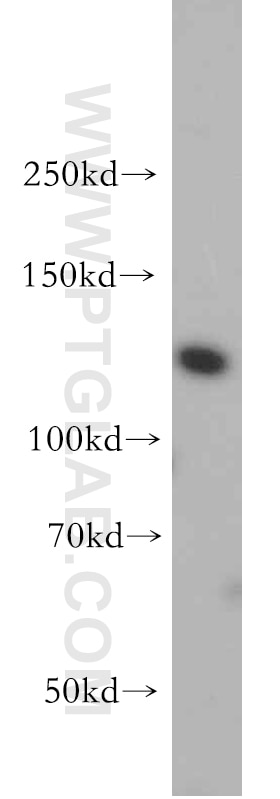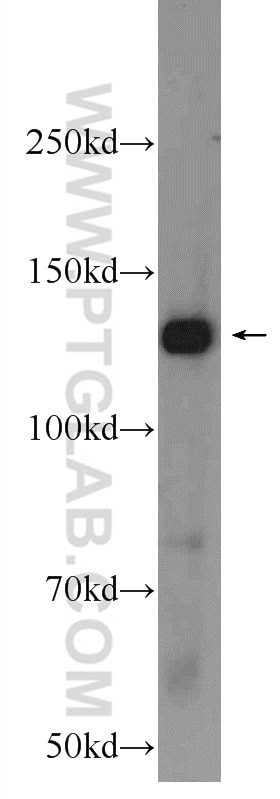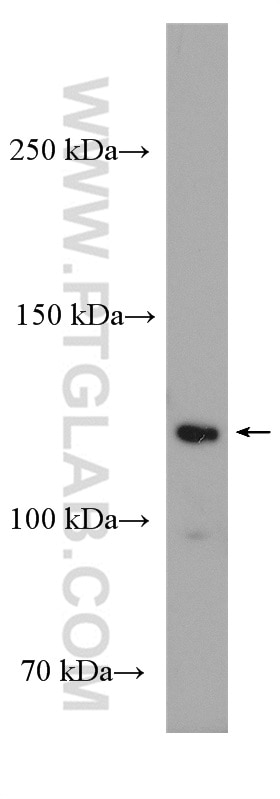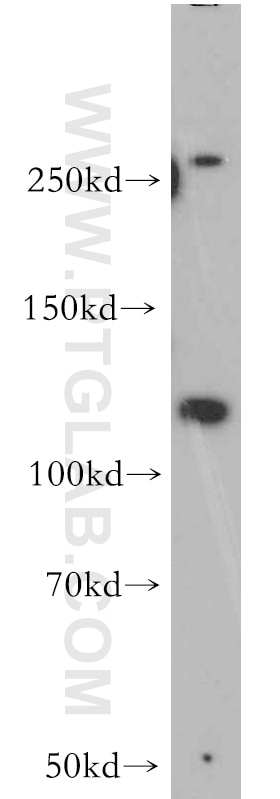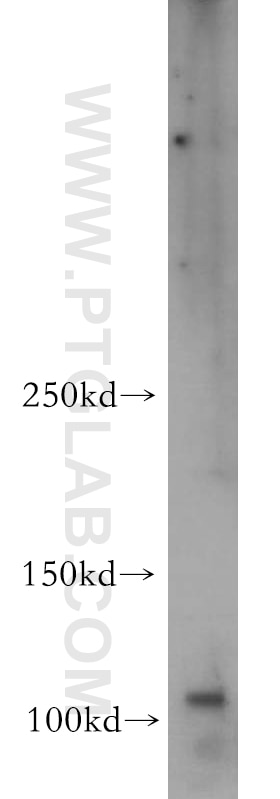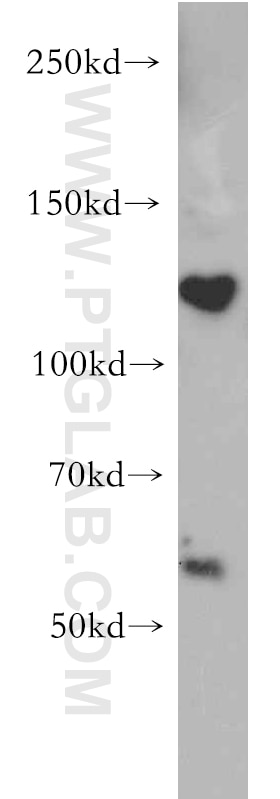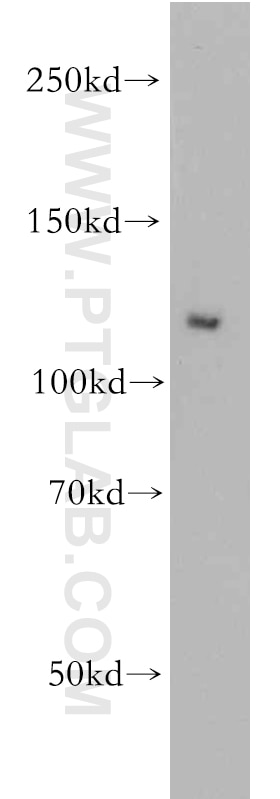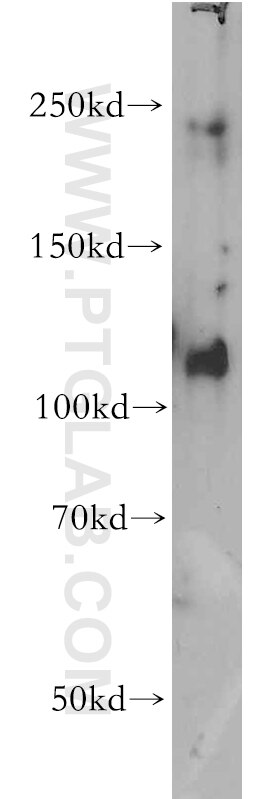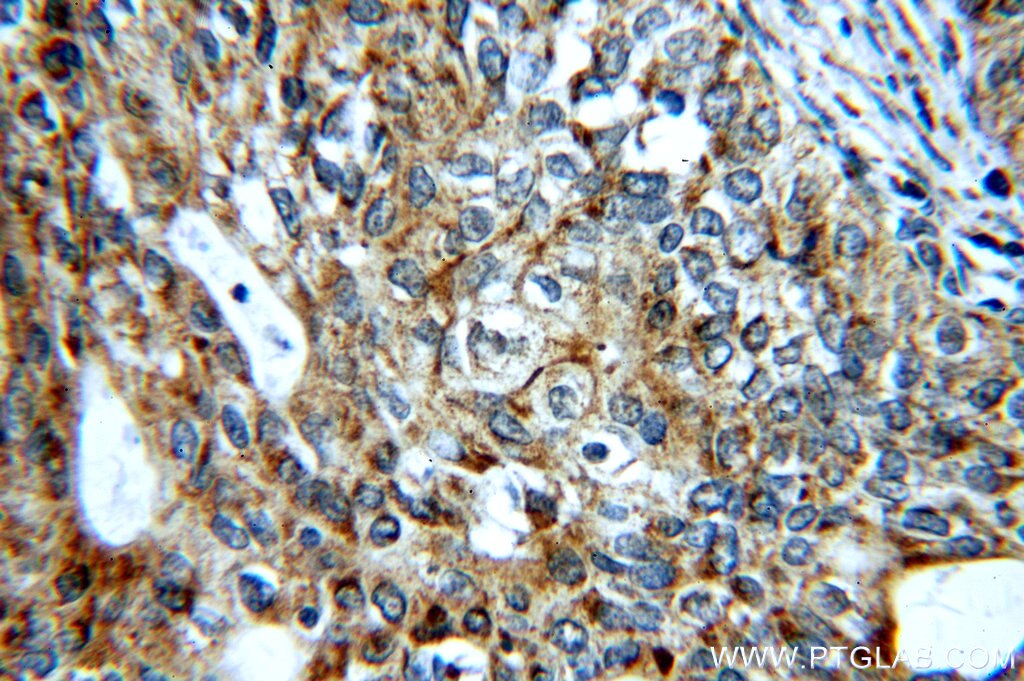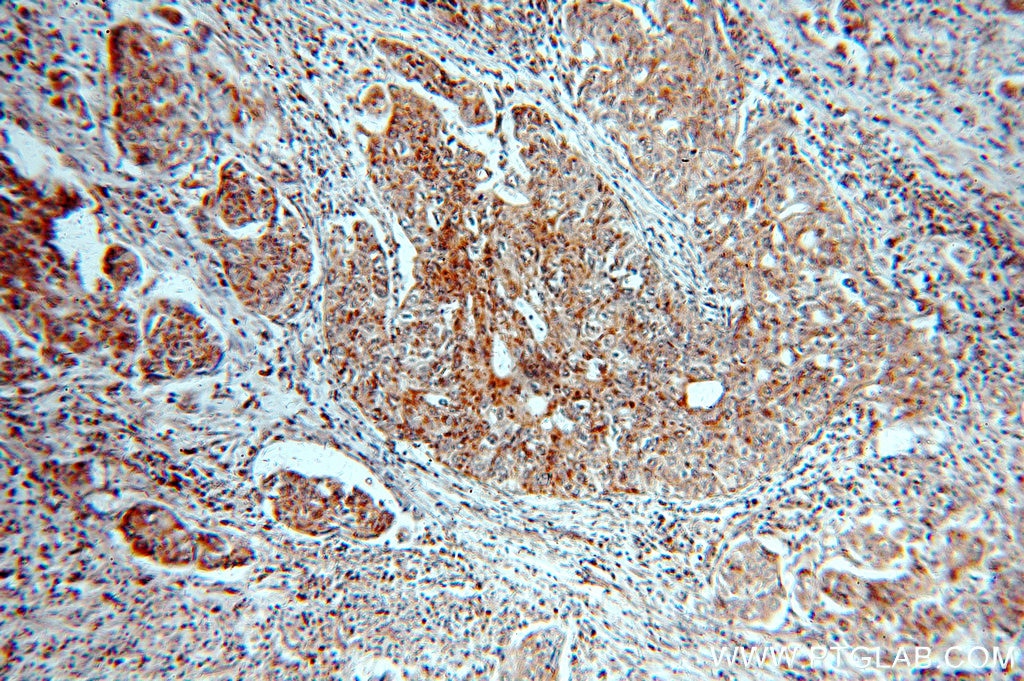Tested Applications
| Positive WB detected in | HepG2 cells, COLO 320 cells, HeLa cells, A431 cells, mouse liver tissue |
| Positive IHC detected in | human cervical cancer tissue Note: suggested antigen retrieval with TE buffer pH 9.0; (*) Alternatively, antigen retrieval may be performed with citrate buffer pH 6.0 |
Recommended dilution
| Application | Dilution |
|---|---|
| Western Blot (WB) | WB : 1:300-1:1000 |
| Immunohistochemistry (IHC) | IHC : 1:50-1:500 |
| It is recommended that this reagent should be titrated in each testing system to obtain optimal results. | |
| Sample-dependent, Check data in validation data gallery. | |
Published Applications
| WB | See 11 publications below |
| IHC | See 3 publications below |
Product Information
20583-1-AP targets PI3 Kinase p110 Alpha in WB, IHC, ELISA applications and shows reactivity with human, mouse, rat samples.
| Tested Reactivity | human, mouse, rat |
| Cited Reactivity | human, mouse, rat |
| Host / Isotype | Rabbit / IgG |
| Class | Polyclonal |
| Type | Antibody |
| Immunogen |
Peptide Predict reactive species |
| Full Name | phosphoinositide-3-kinase, catalytic, alpha polypeptide |
| Calculated Molecular Weight | 124 kDa |
| Observed Molecular Weight | 120-130 kDa |
| GenBank Accession Number | NM_006218 |
| Gene Symbol | PIK3CA |
| Gene ID (NCBI) | 5290 |
| Conjugate | Unconjugated |
| Form | Liquid |
| Purification Method | Antigen affinity purification |
| UNIPROT ID | P42336 |
| Storage Buffer | PBS with 0.02% sodium azide and 50% glycerol, pH 7.3. |
| Storage Conditions | Store at -20°C. Stable for one year after shipment. Aliquoting is unnecessary for -20oC storage. 20ul sizes contain 0.1% BSA. |
Background Information
PIK3CA belongs to the PI3/PI4-kinase family. It phosphorylates PtdIns, PtdIns4P and PtdIns(4,5)P2 with a preference for PtdIns(4,5)P2. Defects in PIK3CA are associated with colorectal cancer (CRC). Defects in PIK3CA are associated with breast cancer. Defects in PIK3CA are associated with ovarian cancer. Defects in PIK3CA may underlie hepatocellular carcinoma (HCC). Defects in PIK3CA are a cause of keratosis seborrheic (KERSEB). The antibody is specific to PIK3CA.
Publications
| Species | Application | Title |
|---|---|---|
Oncogene KIF26B, a novel oncogene, promotes proliferation and metastasis by activating the VEGF pathway in gastric cancer. | ||
Oncotarget Epithelial but not stromal expression of collagen alpha-1(III) is a diagnostic and prognostic indicator of colorectal carcinoma. | ||
Mol Med Rep Resveratrol improves palmitic acid‑induced insulin resistance via the DDIT4/mTOR pathway in C2C12 cells | ||
Dev Comp Immunol Characterization, functional and signaling elucidation of pigeon (Columba livia) interferon-α: Knockdown p53 negatively modulates antiviral response. | ||
Biomed Pharmacother Mitochondrial DNA content reduction induces aerobic glycolysis and reversible resistance to drug-induced apoptosis in SW480 colorectal cancer cells. |

